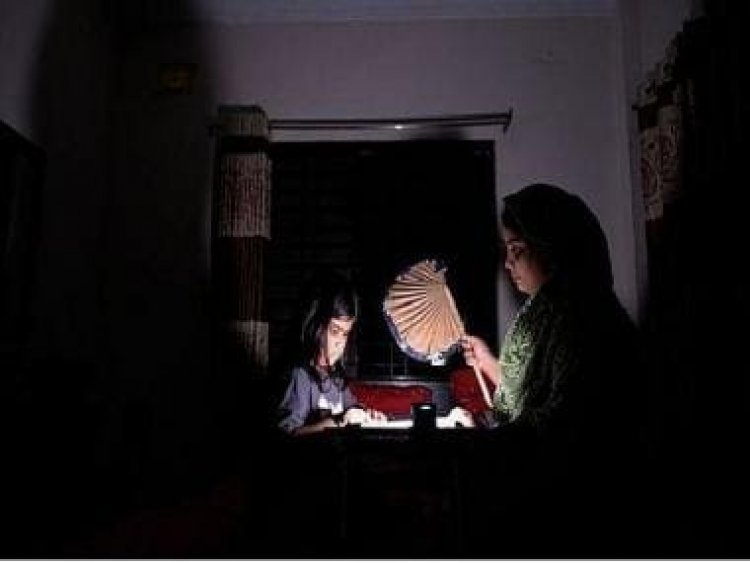Frequent blackouts, school and office hours cut: Is Bangladesh going way of Sri Lanka?
Frequent blackouts, school and office hours cut: Is Bangladesh going way of Sri Lanka?

After Sri Lanka, now Bangladesh is grappling with soaring fuel prices.
The South Asian nation and India’s neighbour raised fuel prices by an eye-whopping 52 per cent in early August, the highest since its independence, setting off protests in several parts of the country.
After the new price hike announcement by the Sheikh Hasina government, petrol prices increased by 51.2 per cent to 130 taka per litre (Rs 108 approximately), 95-octane gasoline by 51.7 per cent to 135 taka (Rs 113 approx.), diesel and kerosene by 42.5 percent, the nation’s power, energy and mineral resources ministry said in a statement, as per Reuters.
Let’s look at how Bangladesh is faring in the wake of the fuel crisis:
Schools, office hours cut
The exorbitant fuel prices in Bangladesh are a result of the Russian invasion of Ukraine which has led to global rise in oil prices.
In order to conserve power, the Bangladesh government has directed schools to remain shut for an additional day each week, while government offices and banks will cut back their work days by an hour from Wednesday.

Private offices will, however, not be forced to comply with the order.
Cabinet Secretary Khandker Anwarul Islam had announced on Monday that schools earlier shut on Fridays will now also be closed on Saturdays.
Even as the decision has drawn ire of some sections, the Bangladesh government has deemed it unavoidable, while assuring that domestic prices will be adjusted once international fuel costs come down.
“We know the price increase is big, but what can we do if the cost of the fuel increases in foreign countries?” Nasrul Hamid, Bangladesh energy minister, told BBC Bangla.
Protests against Bangladesh’s fuel hike
Several protestors had taken to streets after Bangladesh’s unprecedented price hike in early August, scenes reminiscent of Sri Lanka where people thronged the fuelling stations.
According to Dhaka Tribune, many student organisations including Bangladesh Students’ Federation had staged demonstrations against the steep rise in fuel prices in front of the National Museum at Shahbagh.
Bangladesh expects that the price hike will reduce its subsidy burden, however, it will adversely affect inflation which is already above 7 per cent, reported Hindustan Times.
Bangladesh’s inflation rate has spiked over six per cent in the last six months, and hit 7.48 per cent in July, searing a hole in the pockets of the poor and middle class individuals.

“We are already struggling to make ends meet. Now that the government has raised fuel prices, how will we survive?” Mizanur Rahman, a private sector employee was quoted as saying by Reuters.
Power cuts have become more frequent after all diesel-run power plants were closed, leading to a reduction in daily electricity production by 1,000 megawatts.
However, the government has promised continued power supply to industrial zones.
The Opposition has slammed the Hasina government for failing to check corruption and curtail losses in the energy sector.
Bangladesh seeks IMF bailout
Bangladesh’s $416 billion economy has been adversely affected due to many global factors including the Russia-Ukraine war which has caused supply disruptions.
High energy and food prices have increased the nation’s imports bills and worsened its external debt, forcing the government to seek loans from the International Monetary Fund (IMF).
Bangladesh became the third South Asian nation after Pakistan and Sri Lanka to approach the IMF, seeking a $4.5 billion loan for its payments and budgetary requirements, Reuters reported citing Daily Star.
‘Very different from Sri Lanka’s’
Sri Lanka is facing its worst economic crisis in seven decades, which led to a political uprising against the Gotabaya Rajapaksa dispensation and the formation of a new government under Ranil Wickremesinghe.
However, Bangladesh minister Nasrul Hamid is confident his country, even though its foreign currency reserves are declining, will avoid an economic crisis like Sri Lanka, BBC reported.
Bangladesh is not in a crisis situation and its external position was “very different from several countries in the region”, Rahul Anand, division chief in the IMF’s Asia and Pacific Department, was quoted as saying by the Dhaka-based The Business Standard Daily.
“Bangladesh has a low risk of debt distress and is very different from Sri Lanka,” Anand added.
With inputs from agencies
Read all the Latest News, Trending News, Cricket News, Bollywood News,
India News and Entertainment News here. Follow us on Facebook, Twitter and Instagram.
What's Your Reaction?



























































